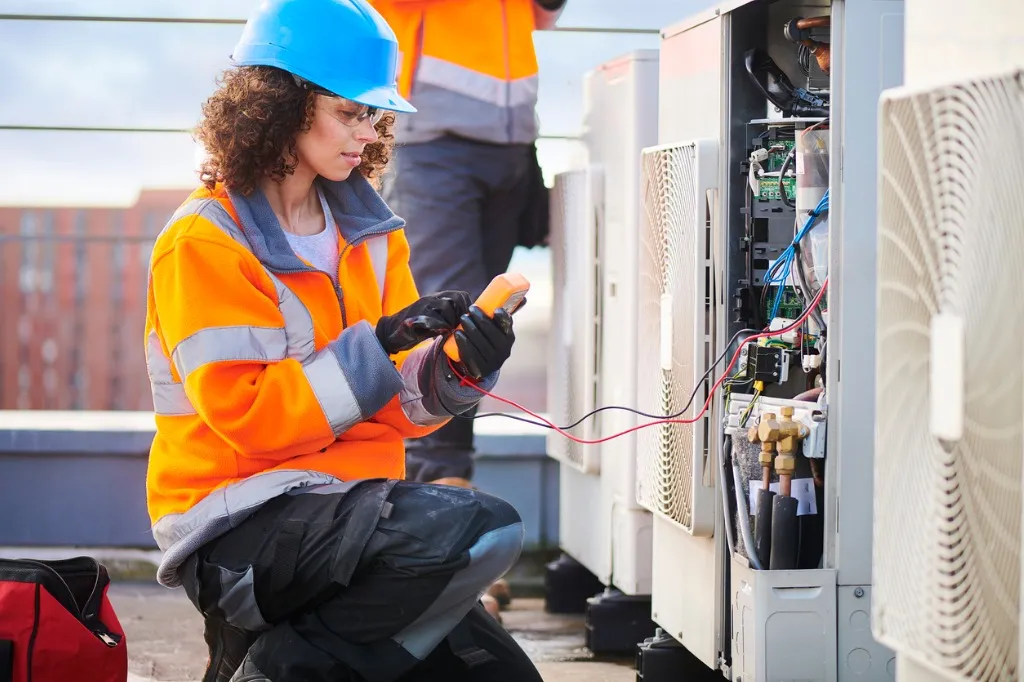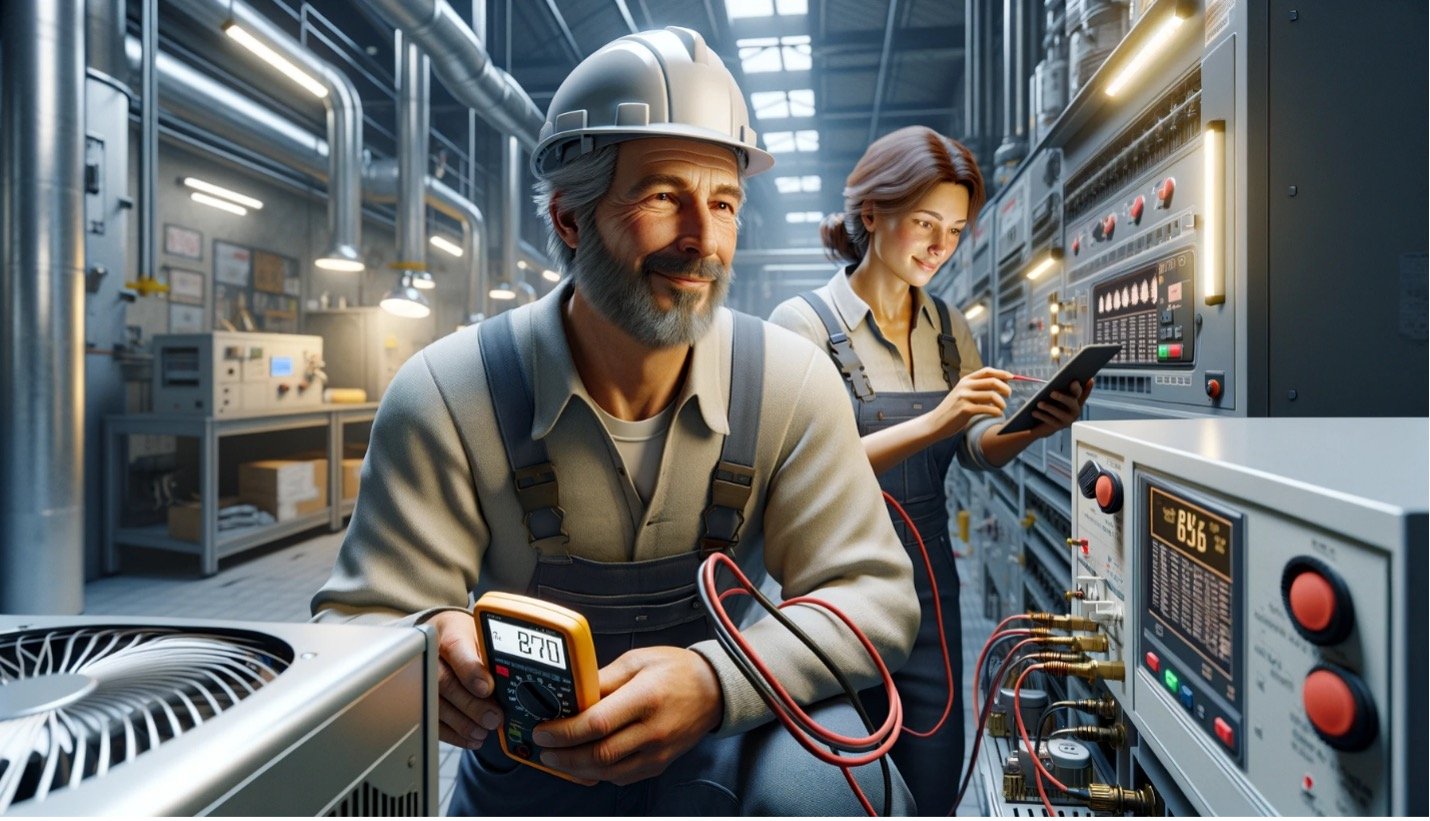A Comprehensive Take A Look At Cooling And Heating Services and Their Influence On Power Performance and Price Cost Savings
With technological innovations like smart thermostats and high-efficiency parts, the capacity for maximizing system performance is huge. As we explore the elaborate connection between HVAC systems and functional prices, including the change towards eco friendly options, the inquiry emerges: how can these strategies be efficiently implemented to maximize both financial and environmental advantages?

Significance of HVAC Systems
cooling and heating systems are a crucial element of modern-day buildings, playing an essential duty in keeping healthy and balanced and comfy indoor settings. These systems, including home heating, air flow, and air conditioning, are necessary for regulating temperature level, humidity, and air top quality, therefore making certain the wellness of occupants. Reliable cooling and heating systems contribute significantly to developing an optimum indoor environment, which is important for both property and commercial rooms.
In commercial buildings, HVAC systems are important to offering a effective and risk-free atmosphere. By regulating interior environment conditions, these systems aid stop the development of mold and the spread of airborne contaminants, hence guarding the health of consumers and workers. In addition, in domestic settings, cooling and heating systems enhance living problems by providing regular thermal comfort and improving interior air high quality, which is crucial for overall health.
Moreover, the design and maintenance of a/c systems have a direct effect on energy usage and operational prices. Properly made and kept systems can considerably decrease energy use, bring about reduced utility expenses and a smaller carbon footprint. The performance of these systems hence plays a crucial role in promoting sustainability and energy conservation within structures, highlighting their value in the modern architectural landscape.
Advancements in HVAC Innovation
Advancement in heating and cooling technology is transforming the way buildings manage interior climates, introducing a new age of effectiveness and control. Recent improvements have focused on maximizing power usage while improving customer comfort. One remarkable growth is the combination of smart thermostats, which use fabricated knowledge to find out tenancy patterns and readjust temperature levels appropriately, decreasing unnecessary power use.
Variable Refrigerant Circulation (VRF) systems stand for another significant jump forward. These systems enable accurate temperature control in different zones of a building, enhancing comfort and reducing energy waste. VRF modern technology is specifically beneficial for large commercial rooms, supplying versatility and scalability.
Additionally, the introduction of Net of Things (IoT) gadgets has actually transformed a/c systems into interconnected networks efficient in real-time data collection and analysis. This connection allows anticipating upkeep, making sure systems run at peak efficiency and decreasing unforeseen downtime.
Moreover, improvements in materials and style, such as making use of high-efficiency coils and compressors, have boosted overall system efficiency - Heating Contractor. The fostering of ecologically pleasant refrigerants also highlights the industry's dedication to sustainability
These technological innovations are essential in decreasing functional costs and environmental impact, establishing new requirements for constructing climate monitoring.
A/c Upkeep and Efficiency
Making sure optimal efficiency of a/c systems prolongs past technological advancements; it also rests on reliable maintenance methods. Normal upkeep is crucial for sustaining performance, decreasing power consumption, and extending the life expectancy of a/c systems. The main objective is to guarantee that all components function at their peak capacity, therefore lessening energy wastage and keeping consistent interior comfort degrees.
Routine maintenance tasks, such as cleansing or replacing air filters, inspecting cooling agent levels, and inspecting ductwork for leakages, are essential for stopping unnecessary strain on the system. Unclean or clogged filters can obstruct airflow, triggering the system to function more challenging and eat more energy. Likewise, inadequate cooling agent degrees can decrease cooling down effectiveness, bring about higher operational expenses.
In addition, routine examinations by qualified specialists see this website can determine potential concerns before they intensify into expensive repair work or system failures. These evaluations typically consist of checking electrical links, adjusting thermostats, and guaranteeing the total integrity of the HVAC system. By resolving small problems early, businesses and home owners can stay clear of unanticipated break downs and enhance power effectiveness.
Affordable HVAC Solutions
For those looking to obtain one of the most out of their air flow, air, and home heating conditioning systems without breaking the financial institution, discovering cost-effective a/c solutions can make a considerable difference. One instant action is navigate to this site to purchase programmable thermostats, which allow users to establish particular temperature levels for various times of the day, enhancing power usage and decreasing unneeded consumption. By automating temperature modifications, house owners can attain considerable cost savings on energy expenses.
Regular upkeep is one more vital element of affordable HVAC monitoring. Ensuring that filters are cleaned up or changed regularly, ductwork is sealed, and systems are serviced by specialists can avoid pricey fixings and improve system longevity. Precautionary upkeep not just keeps system effectiveness yet additionally aids in staying clear of unanticipated breakdowns that can cause expensive emergency repairs.
Furthermore, retrofitting existing systems with energy-efficient parts, such as variable speed motors or high-efficiency compressors, can be a prudent financial investment. These upgrades improve operational performance, decrease energy usage, and can typically be implemented at a fraction of the expense of a complete system substitute.
Ecological Impact Decrease
Minimizing the environmental influence of cooling and heating systems is critical in today's search of sustainable living. A/c systems are substantial contributors to energy intake, accounting for almost 40% of power usage in industrial buildings. This power need typically relies upon fossil fuels, causing greenhouse gas emissions and ecological degradation. Transitioning to extra effective systems, such as those making use of eco-friendly energy resources, can significantly mitigate these effects.
Technical advancements in a/c layout and operation, including the combination of clever thermostats and energy-efficient heatpump, are essential in lowering heating and ac near me carbon impacts. These innovations enable maximized power use, decreasing wastage and improving general system performance. Additionally, embracing regular maintenance techniques ensures cooling and heating systems operate at peak efficiency, more reducing unnecessary energy intake.
Furthermore, making use of eco-friendly refrigerants is important, as standard cooling agents, like CFCs and HCFCs, have been phased out as a result of their ozone-depleting properties. Modern alternatives, such as hydrofluoroolefins (HFOs), deal lowered ecological dangers, straightening with international ecological protocols. By welcoming these sustainable practices, HVAC services can play a transformative function in decreasing environmental influences, promoting power effectiveness, and cultivating a much more sustainable future.
Verdict

Furthermore, the layout and maintenance of HVAC systems have a direct impact on energy usage and operational prices. Normal maintenance is crucial for sustaining efficiency, minimizing power intake, and extending the life period of Cooling and heating systems. Cooling and heating systems are considerable factors to power usage, accounting for nearly 40% of power use in business structures. Furthermore, embracing routine maintenance techniques makes sure A/c systems run at peak performance, additional cutting unneeded power consumption.
The transition to environmentally friendly Heating and cooling systems better decreases functional prices and promotes sustainability. (Heating Contractor)